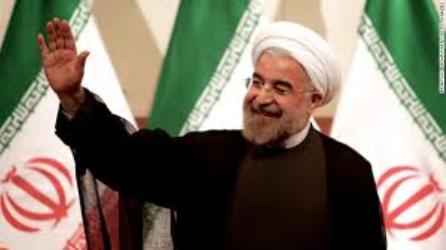
This tends to be also true when we try to reflect on the last week’s trip to Oman and Kuwait by the Iranian President Hassan Rouhani.
Closely looking, and on a regional level, Rouhani’s Wednesday meetings with Oman's Sultan Qaboos and Emir of Kuwait Sheikh Sabah al-Ahmad al-Jaber al-Sabah, demonstrate a will on the two sides of the Persian Gulf to mend fences and resume ties that has appeared to become increasingly sour, following developments over last year.
Following the attack on the Saudi embassy in Tehran, in January 2016, ties between Tehran and Riyadh grew chilly and under the pressure from Saudi Arabia five other members of the Persian Gulf Cooperation Council, known as GCC, including Bahrain, Kuwait, Qatar and the United Arab Emirates severed diplomatic ties with the Islamic Republic though Oman stopped short of doing so, only expressing regret over the attack.
Now, however, away from all the political and economic implications, Iran is trying to respond to the positive signals sent from the intergovernmental Council in the Persian Gulf region, to which Oman and Kuwait are also members.
Late in January, Kuwaiti Foreign Minister Sheikh Sabah al-Khalid al-Hamad al-Sabah visited Tehran to deliver the Kuwaiti Emir’s letter to the Iranian President on relations between Iran and the Persian Gulf Arab countries.
Now the Islamic Republic is responding to the call in a bid to create a détente.
In a region already overwhelmed with religious and ethnic conflicts and interference by foreign forces, Iran remains to continue its campaign for addressing regional issues, including terrorism and extremism, by establishing collective mechanisms and fostering regional cooperation.
For years, the Middle East has been forced to bear with a security and stability pattern imposed on the region by interfering foreign powers that have sought to maintain their hegemony over the resourceful and strategic region.
For long, the Middle East has been the scene of conflicts between different factions and ethnic and religious groups. The terrorism and extremism, though remain to be effective tools in the hands of big powers to control the region, currently is spilling over to other parts of the globe, from Paris to Ohio, providing big powers a pretext to deploy forces in the region and go on with their threats.
Under such an atmosphere and in the absence of any regional constructive pattern to foster trust and cooperation in the region, there is a need for a player to step in and bring together all other regional players to create peace and stability.
Here, the bigger picture for Iran’s engagement with the Persian Gulf Arab states gradually starts showing up; an engagement based on a doctrine advocating a belief that the destiny of the regional nations, their security and any attempts to protect their interests are blended and interwoven.
It is up to the regional nations to put in place collective mechanisms and address common issues as well as common threats.
Iran has always followed to achieve a win-win policy in its ties with other regional players. The security Iran is trying to establish is, against all the Iranophobia propagated in the region, is going to benefit all the countries and not solely the Islamic Republic.
President Rouhani’s visit to Oman and Kuwait, in a broader sense and examined from a broader perspective, is going to put an end to the idea that Iran is a regional or global threat; that Iran is not an enemy.
'Today we must all stand side-by-side as Muslim brothers and confront divisive ideas,' President Rouhani told Kuwait's Emir Sheikh Sabah Al Ahmad Al Sabah.
The ethnic and religious diversities should not be a cause for disputes and divisions; rather they should be a means to bring regional countries closer than ever.
By standing far and looking at what is going on in the Middle East, the observer will not come across solely with the stereotypes like conflicts, terrorism and extremism, peculiar to the region
A vigilant observer is going to see a very diverse region which can capitalize on its inherent pluralistic nature to thrive and promote peace and prosperity.
2044**2050
www.irna.ir
 solhkhabar | Peace International News Agency Peace International News Agency , Peace News , International Agency News of Peace
solhkhabar | Peace International News Agency Peace International News Agency , Peace News , International Agency News of Peace